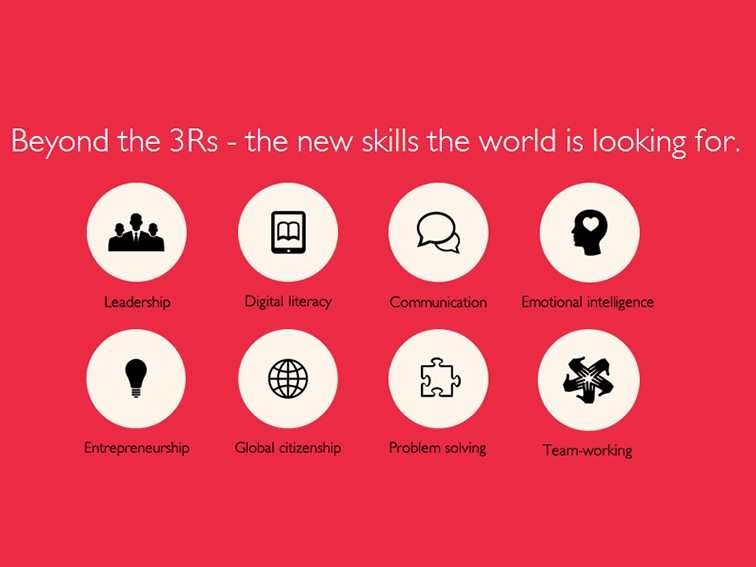
8 Lessons Of A Modern Education
Pearson sent us this report recently–Exploring the Learning Curve. The big idea here is the changing skill needs for students globally. It is based on this idea of an index–a Global Index of Cognitive Skills and Education Attainment. The report explains:
“The Global Index of Cognitive Skills and Educational Attainment compares the performance of 39 countries and one region (Hong Kong) on two categories of education: Cognitive Skills and Educational Attainment. The Index provides a snapshot of the relative performance of countries based on their education outputs.”
In short, it is formatted around 6 lessons and 8 skills. The lessons are shown below, the skills are identified in the graphic above.
“Lesson 1
The OECD estimates that half of the economic growth in developed countries in the last decade came from improved skills.
Lesson 2
In recent years it has become increasingly clear that basic reading, writing and arithmetic are not enough. The importance of 21st century non-cognitive skills – broadly defined as abilities important for social interaction – is pronounced.
Lesson 3
Making sure people are taught the right skills early in their childhood is much more effective than trying to improve skills in adulthood for people who were let down by their school system. But even when primary education is of high quality, skills decline in adulthood if they are not used regularly.
Lesson 4
Lifelong learning, even simple reading at home and number crunching at work, helps to slow the rate of age-related skill decline; but mainly for those who are highly skilled already. Teaching adults does very little to make up for a poor school system.
Lesson 5
Technology can provide new pathways into adult education, particularly in the developing world, but is no panacea. There is little evidence that technology alone helps individuals actually develop new skills.
Lesson 6
Developing countries must teach basic skills more effectively before they start to consider the wider skills agenda. There is little point in investing in pedagogies and technologies to foster 21st-century skills, when the basics of numeracy and literacy aren’t in place.”
8 Skills For a Modern Education
So the report includes 8 skills–modern skills for modern students:
1. Leadership
2. Digital Literacy
3. Communication
4. Emotional Intelligence
5. Entrepreneurship
6. Global Citizenship
7. Problem-solving
8. Team-working
The skills seemed like the traditional ’21st-century skills’ so often called for by so many different organizations. The index seemed the most informative part to us, but we couldn’t figure out how to package it, so we moved on. Then we saw the image with the skills absolutely explode all over social media.
Clearly there is tremendous interest in 21st-century skills, so we culled some of the interesting bits from the report into this post, and suggest you check out the full report to learn more.
8 Critical Skills For A Modern Education
